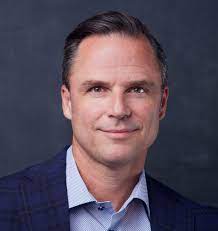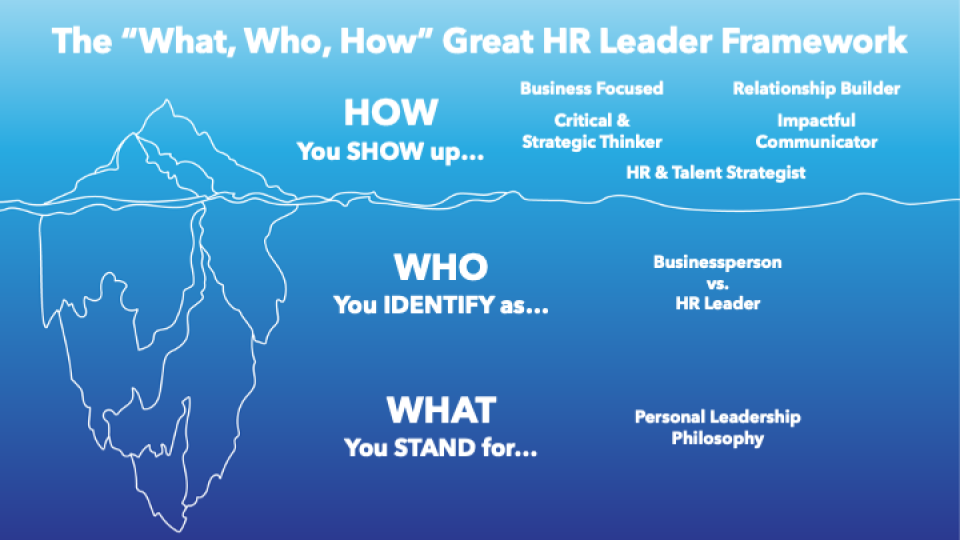
JP Elliott
Founder of Future of HR Consulting
When I launched the Future of HR podcast back in October 2022, I never imagined the incredible journey it would take me on.
I’ve had the privilege of interviewing more than 100 top HR leaders and industry experts.
While each conversation was unique, over time a pattern emerged that transformed my understanding of what truly makes an exceptional HR leader.
Initially, I approached these interviews expecting to learn about innovative HR strategies, cutting-edge talent practices, or forward-looking approaches to culture-building.
But I soon realized something far more profound was happening.
It wasn’t what I was learning about HR practices that mattered most—it was who I was learning from.
It wasn't what I was learning about HR practices that mattered most—it was who I was learning from.
The common thread across all these conversations wasn’t tactical HR knowledge.
It was something deeper about how these exceptional leaders think, identify themselves, and show up every day.
This revelation led me to create what I now call the “What, Who, How: Great HR Leader Framework.”

by JP Elliott, Future of HR Consulting
A framework for excellence as an HR Leader
I use the analogy of an iceberg to represent my “What, Who, How: Great HR Leader” framework because HR leadership is similar to an iceberg.
What others see—how HR leaders “show up” day-to-day—is just the visible portion above the waterline. But what truly powers their effectiveness lies beneath the surface: what they stand for and who they identify as.
The best HR leaders know what they stand for and it is this invisible foundation that gives exceptional HR leaders their “calm confidence” and internal courage to navigate challenging situations.
Exceptional HR leaders think of themselves as business leaders first, and HR leaders second.
What are the characteristics of a great HR Leader?
Truly great HR Leaders possess the following five characteristics that set them apart from an average HR Leader.

They are business-focused
Great HR leaders don’t just serve the business—they are the business. As Lucien Alziari, EVP and CHRO of Prudential Financial, told me: “If you were to sample a group of CEOs and ask what made a difference for them between the best CHROs and the rest, they would talk about business leadership. The best CHROs saw themselves as business leaders first, who happened to have accountability for talent and culture.”
Top HR Leaders…
Deeply understand their company’s business model, revenue streams, and financial metrics.
Actively engage in business discussions beyond HR topics.
Regularly seek opportunities to experience the business firsthand.

They position themselves as strategic advisors
Top HR leaders build authentic connections that position them as strategic advisors rather than service providers. They create deep trust through genuine interest in others.
Jordana Kammerud, CHRO at Corning, explained her approach: “One of the things I do in any new role is work to understand people as people, but also help people understand me. Because most missteps are really misunderstandings or misperceptions.”
The best HR Leaders…
-
Make time to understand stakeholders’ professional priorities and current challenges
-
Avoid making assumptions when miscommunications occur
-
Make explicit their commitment to helping business leaders succeed

They practice systems thinking
Exceptional HR leaders practice systems thinking—understanding how different elements of the organization interconnect.
As Melissa Daimler, former Chief Learning Officer at Udemy, shared: “Just like in sailing you can’t just focus on your crew, or the tiller, or the wind, in an organization, you can’t just focus on strategy, culture, or structure. All these pieces fit together.”
These leaders also think like innovators, challenging traditional approaches and organizational “ghosts”—those invisible patterns where people say, “That’s just the way we do things around here.”

They are courageous communicators
Great HR leaders master structured, purpose-driven communication. They speak with confidence and courage, particularly when sharing difficult truths.
As Paige Ross, Global Head of HR at Blackstone, emphasized: “For an HR leader, you need the courage to always have a point of view and the courage to share it. The differentiator between a successful HR leader and somebody who’s not is the ability to demonstrate courage.”

They anticipate future business needs
The best HR leaders anticipate future business needs and design work models that enable long-term success. As Dave Ulrich wisely noted: “In HR, we often make the mistake of starting with ‘what’s new in talent?’ Instead, we should start with ‘What does our business need to succeed?’ Once we have the answer, we can come back and say, ‘What can I do in talent to make it happen?'”
How to elevate your capabilities as an HR Leader
Becoming an exceptional HR leader doesn’t happen overnight—it’s about getting 1% better each day. Here are three practical steps to begin your journey:
-
Clarify your foundation: Take 15 minutes to reflect on your personal leadership philosophy. What do you believe in? What impact do you want to have? What principles will you never compromise on?
- Identify one area for growth: Which of the five characteristics resonates most with you as an opportunity? Choose just ONE to focus on initially.
- Being business-focused
- Positioning yourself as strategic advisor
- Practicing systems thinking
- Being a courageous communicator
- Anticipating future business needs
-
Take a specific action this week: Here are some examples of actions you can take that are related to the characteristic you’re focusing on:
To focus on business acumen – schedule time to shadow a business unit meeting.To build relationships as a strategic advisor – initiate a conversation with a key stakeholder focused solely on understanding their current business challenges.
To develop your systems thinking – create a mind map connecting your current HR initiative to broader business objectives.
To embolden your communication – structure your next presentation using the “problem, solution, benefit” framework.To enhance HR strategy and get better at anticipating future needs – meet with business leaders to understand how they see the business evolving in the next 2-3 years.
HR needs you!
Remember, becoming a great HR leader isn’t about mastering HR processes—it’s about driving business success through people. As Lucien Alziari perfectly summarized: “Our role is not to do great HR work or come up with the next fads. Our role is to help our businesses win.”
The future of HR needs leaders like you who understand and will bring this fundamental truth to life. Your journey to becoming a great HR leader begins by knowing what you stand for, who you identify as, and how you show up to create more impact.
- Our founder, Riina Hellström, will be joining JP Elliott and an all-star lineup of HR thought leaders sharing their insights to help level up HR at this year’s Elevate – a next-generation HR event. Learn more about Elevate 2025 here

JP Elliott
Founder of Future of HR Consulting
JP Elliott is at the forefront of transforming HR from a support function into a strategic powerhouse as founder of Future of HR and host of a podcast reaching 250,000 downloads across 190 countries. With executive experience at Dick's Sporting Goods, McAfee, Brinks, and Lenovo, JP has led large-scale talent and organizational effectiveness initiatives in complex environments. His Next-Gen HR Accelerator and Elevate programs have attracted HR leaders from companies like Nike, Prudential, and KPMG who seek to develop strategic business leadership capabilities. As a sought-after keynote speaker, JP inspires HR professionals to embrace a business-first mindset where HR becomes not just a business partner—but a business leader. Learn more at futureofhr.com

